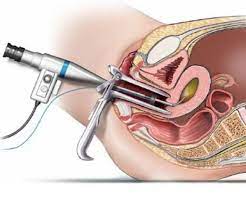
Gynecological endoscopy, also known as minimally invasive gynecological surgery or minimally invasive surgery, is a medical technique that allows healthcare providers to visualize and perform various surgical procedures within the female reproductive system using small incisions and specialized instruments. This approach is used to diagnose and treat various gynecological conditions with less pain, smaller scars, and faster recovery times compared to traditional open surgery.
However, gynecological endoscopy is not suitable for all patients or conditions. The choice of whether to use minimally invasive surgery depends on factors such as the specific diagnosis, the patient’s overall health, and the surgeon’s expertise.
It’s important to consult with a gynecologist or gynecological surgeon to discuss your individual condition and treatment options. They can provide guidance on whether gynecological endoscopy is appropriate for you and explain the potential risks and benefits associated with the procedure.
WhatsApp us